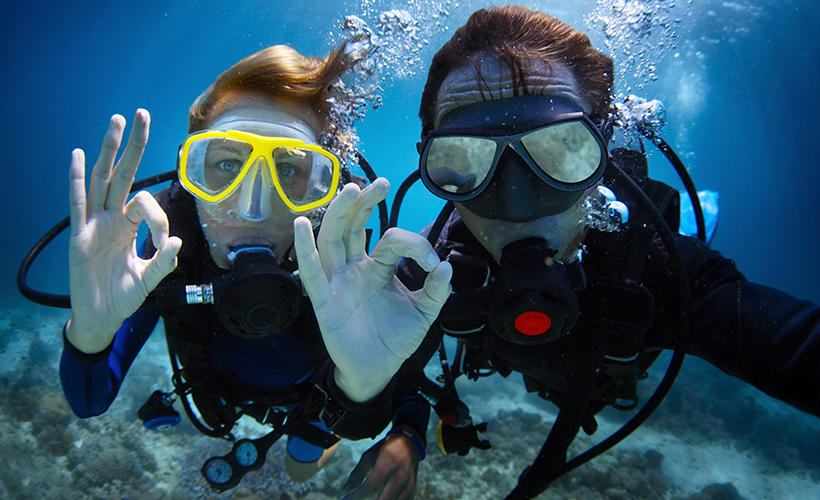
Diving typically involves breathing using underwater breathing apparatus that is usually self-contained (scuba) but can be from a source at the surface (eg, a hookah). Many tourist operators offer diving from a boat, or you can dive independently (although you should always dive with a buddy) if you have a diving certification.
Snorkelling is swimming with the aid of a mask and snorkel and, often, fins. You don’t need a certification for snorkelling, but some orientation and/or training is recommended.
Due to increases in diving and snorkelling-related deaths over the past decade, diving and snorkelling are a national focus for water safety.
Most diving-related drowning deaths occur in offshore waters while snorkelling-related deaths often occur at coastal beaches.
Risk Factors
- Poor medical fitness, especially age-related cardiac issues, and obesity
- Poor planning and failure to follow safety instructions
- Poor skills and inexperience, or lack of recent experience
- Lack of familiarity with equipment or use of inappropriate or faulty equipment
- Anxiety and low levels of confidence – due to being unfamiliar with the location, equipment, disorientation resulting from poor conditions
- Hypoxic blackout from extended breathholding in snorkellers
How to stay safe
Before diving or snorkelling
- Consider getting a medical check prior to diving (preferably by specialist diving doctor). This is strongly advised for people aged 45 years and over and for anyone with a medical condition, such as high blood pressure, a heart or respiratory condition, a neurological condition (eg, epilepsy), or ear or sinus problems
- Choose appropriate and functional equipment that fits correctly and get used to wearing it
- Equipment should be regularly checked and maintained
- Be familiar with any local diving guidelines or regulations
On the day
- Ensure you are feeling well enough for diving (and free from the effects of alcohol or drugs)
- Check the weather forecast, current weather, and water conditions before you go
- Tell someone where you are going and when you will be back
- Always go with others and stick to the buddy system
- Ensure you are well but not over hydrated
When you get to the location
- Look for and read any safety signs
- Ask locals for advice about the conditions and potential hazards
- Spend some time observing the water conditions before diving or snorkelling
- Always take a form of communication (eg, a mobile phone) but be aware that some remote locations have no mobile phone reception
- Always use a buddy system
- In an emergency, dial Triple Zero or 112 to get help
Further information
See the Divers Alert Network of the Australasian Diving Safety Foundation for diving specific information including safety resources
